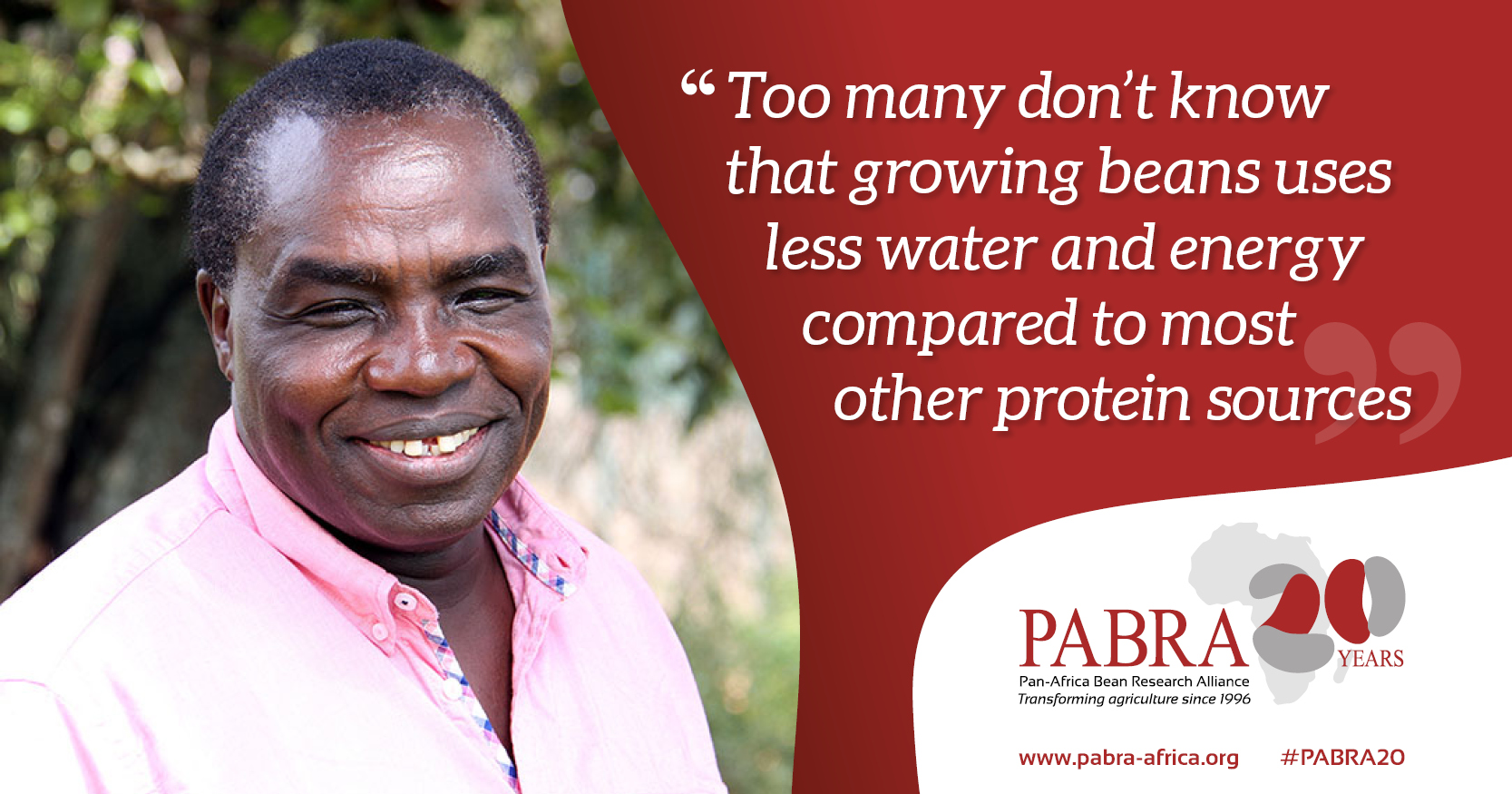By Dr. Robin Buruchara, Director of the Pan-Africa Bean Research Alliance (PABRA)
Editorial of PABRA Annual Report 2016 – 20th Anniversary Special Edition
Venture onto any small farm in Rwanda or Uganda at meal time, and I can guarantee you that you will find beans on your plate. Come to think of it, venture onto any low income urban home or boarding school across Africa at meal time, and you are more likely than not to find beans or some kind of pulse on your plate.
And that’s despite the most severe drought that parts of the continent have seen in decades. Rains have been late or not come at all; water scarcity has devastated harvests and incomes have been crippled.
Yet legumes, such as beans tolerate drought relatively well compared with annual food crops partly due to their short growing season. Farmers value them for this – and because they’re inexpensive and easy to grow, with seeds sourced from neighbors or family members. They also know that legumes, are a good bet: if most of their harvest fails and they can’t sell anything – at least they have some food at home.
Yet across Africa, many farmers don’t realize some of their beans can be sold for twice the price. Many don’t know which varieties can help fight anemia, or reverse iron deficiency. Many don’t realize that beans fix nitrogen, improving soil fertility and farm productivity.
Too many don’t know that growing beans uses less water and energy compared to most other protein sources. It is for all these reasons that PABRA was launched, to strengthen resilience among smallholder farmers and provide nutritious food.
This needs to change. These are vital factors for farmers in Africa, who must prepare for more drought, longer dry seasons and unpredictable rainfall. Our farmers need more resilient crops, and beans are an excellent case in point.
Towards this vision, we will not stop working until more farmers know it – and can benefit for the next 20 years to come and beyond. Our new Commodity Corridor approach, explained in these pages, is an example of how we continue to strengthen our focus, levering our research results to provide better beans for our farmers and consumers.
Significant challenges block the road to improved production – not least because beans are not recognized as they should be in climate policy, in nutrition programs, in health initiatives. Yet our research shows that when farmers grow improved beans, they can expect yield increases in their fields; extra income in their pockets, and more nutritious meals on their tables.

